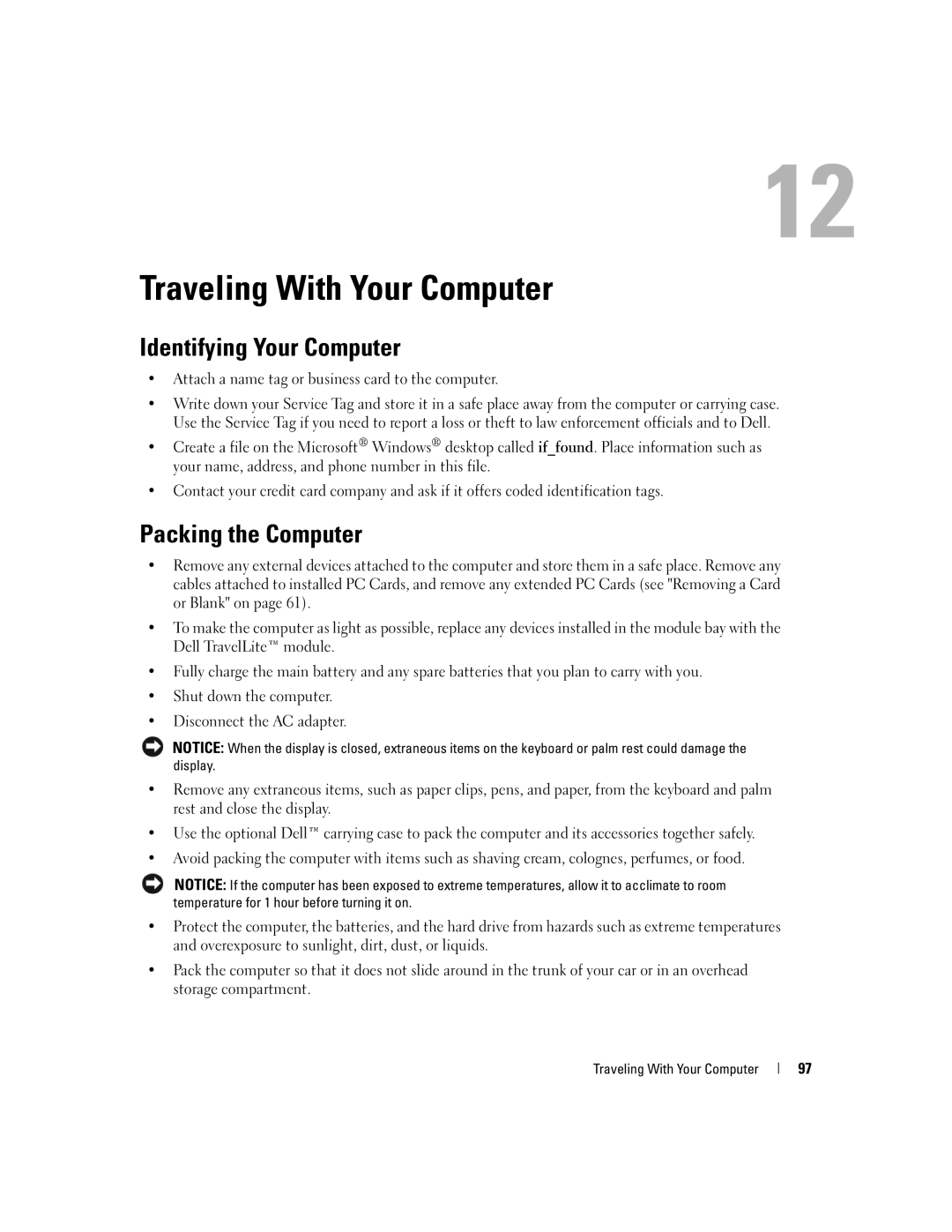
Traveling With Your Computer
Identifying Your Computer
•Attach a name tag or business card to the computer.
•Write down your Service Tag and store it in a safe place away from the computer or carrying case. Use the Service Tag if you need to report a loss or theft to law enforcement officials and to Dell.
•Create a file on the Microsoft® Windows® desktop called if_found. Place information such as your name, address, and phone number in this file.
•Contact your credit card company and ask if it offers coded identification tags.
Packing the Computer
•Remove any external devices attached to the computer and store them in a safe place. Remove any cables attached to installed PC Cards, and remove any extended PC Cards (see "Removing a Card or Blank" on page 61).
•To make the computer as light as possible, replace any devices installed in the module bay with the Dell TravelLite™ module.
•Fully charge the main battery and any spare batteries that you plan to carry with you.
•Shut down the computer.
•Disconnect the AC adapter.
NOTICE: When the display is closed, extraneous items on the keyboard or palm rest could damage the display.
•Remove any extraneous items, such as paper clips, pens, and paper, from the keyboard and palm rest and close the display.
•Use the optional Dell™ carrying case to pack the computer and its accessories together safely.
•Avoid packing the computer with items such as shaving cream, colognes, perfumes, or food.
NOTICE: If the computer has been exposed to extreme temperatures, allow it to acclimate to room temperature for 1 hour before turning it on.
•Protect the computer, the batteries, and the hard drive from hazards such as extreme temperatures and overexposure to sunlight, dirt, dust, or liquids.
•Pack the computer so that it does not slide around in the trunk of your car or in an overhead storage compartment.
Traveling With Your Computer
97
